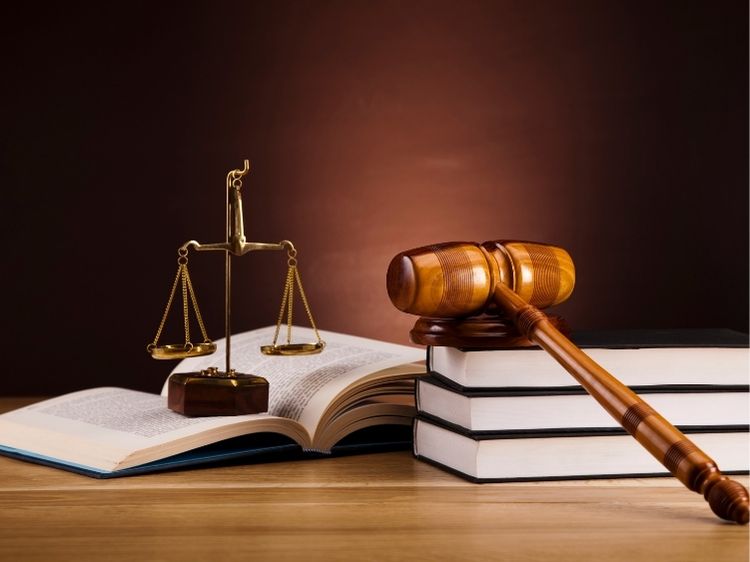Knowing the nuances of state law can be daunting, particularly in the context of traffic and criminal laws. The Texas Criminal and Traffic Law Manual can serve as an indispensable resource for law enforcement personnel, attorneys, and residents trying to navigate the maze of state legislation. This comprehensive guide provides concise and current information about laws, procedures, and penalties to ensure that you comply with Texas law.
The Importance of the Texas Criminal and Traffic Law Manual
Texas law constantly changes through new legislation, legal interpretations, judicial interpretations, and legislative changes that transform law and regulation. Its Texas Criminal and Traffic Law Manual summarizes the most important legal provisions into one easy-to-read volume. A logical method for dealing with criminal offenses, traffic violations, and procedure guidelines ensures that people and professionals are equipped with the most accurate information.
One of the primary purposes of this guide is to serve as an accurate reference guide for law enforcement officers. Traffic stops, arrests, and criminal investigations need to follow legal guidelines. This guide aids officers in making legal decisions. Attorneys also use the manual for interpreting statutes, developing cases, and representing clients in the courtroom. For people, it acts as a tool for education to clarify the legal consequences of different actions and aid them in understanding their rights.
Key Areas Covered in the Manual
The Texas Criminal and Traffic Law Manual covers various legal subjects comprehensively. Criminal offenses, which range from misdemeanors and felonies, are clearly defined. The manual provides the meanings, classifications, and penalties applicable to offenses like assault, theft, drug-related crimes, and many other offenses. With precise citations to the Texas Penal Code, users can quickly find legal requirements applicable to their case.
Traffic laws are a crucial part of the handbook. Texas has strict regulations for licenses, vehicle operation, and road safety. Speeding, drunk driving (DUI), reckless driving, and failing to yield are all dealt with in depth. This section clarifies penalties, points on a driving record, and the possibility of license suspensions, ensuring that law enforcement personnel and drivers know the consequences of traffic violations.
In addition, the manual contains rules for the conduct of searches, arrests, and evidence collection. Police officers must adhere to proper procedures to ensure evidence’s admissibility and protect citizens’ constitutional rights. This article outlines the appropriate methods to prevent unlawful searches and guard against violations of rights.
How the Manual Benefits Legal Professionals and Citizens
For lawyers for attorneys, lawyers, the Texas Criminal and Traffic Law Manual is an invaluable resource to prepare for legal cases. It assists in interpreting complicated statutes in addition to formulating defense strategies. Prosecutors, criminal defense lawyers, and judges often refer to it to ensure they have correctly interpreted the laws. Its format is structured, allowing lawyers to find details quickly, which aids in efficient courtroom advocacy and case preparation.
Law enforcement officers can benefit from the manual, using it as a reference for the field. When issuing summonses, executing arrests, or managing legal disputes, police officers must base their decisions on the latest legal guidelines. The manual ensures compliance with state laws, reducing the chance of mistakes in the procedure that could result in the dismissal of instances and civil litigation.
Citizens who read the guidelines gain a better understanding of their rights and obligations under Texas law. Many people face legal issues due to ignorance of traffic laws and criminal statutes. With the help of the guide, they will be able to better navigate encounters with law enforcement officials, be aware of potential penalties, and make educated decisions regarding representation in court.
Updates and Amendments to the Manual
The Texas Criminal and Traffic Law Manual undergoes regular revisions that reflect changes to the legislative framework and new court decisions. State legislators frequently alter laws, and court decisions could establish precedents that alter legal interpretations. Regular updates ensure that users have access to the most up-to-date information, thus avoiding reliance on outdated laws.
Law enforcement and legal professional agencies should be able to access the most current edition to ensure precision in their work. Numerous publishers provide online manual versions, allowing instant updates and faster access. Online versions also include search capabilities, enabling users to locate relevant statutes quickly.
Ensuring compliance with Texas Law
Legal compliance is a duty that everyone, including law enforcement personnel, shares with regular drivers. The Texas Criminal and Traffic Law Manual is essential in ensuring that the law is followed. Businesses, employers, and government agencies could use the manual to create guidelines that conform to Texas laws. Compliance with traffic and criminal laws will protect you from legal penalties and help to ensure the public’s safety and security.
Awareness and education are essential to ensuring that you comply with state laws. Knowing the legal terms and procedures and potential outcomes helps people make educated decisions when faced with traffic violations or a criminal conviction. With the help of the guide, both professional and non-professional alike will be able to navigate legal systems without fear.
Conclusion
The Texas Criminal and Traffic Law Manual is more than a mere legal reference. It is a complete guide to ensure clarity and adherence to legal issues. The comprehensive information on criminal offenses, traffic regulations, and procedures makes it an essential instrument for law enforcement officials, attorneys, and everyone else. By being informed and current with current legal changes, citizens can protect their rights, abide by the laws, and contribute to a safer environment.

